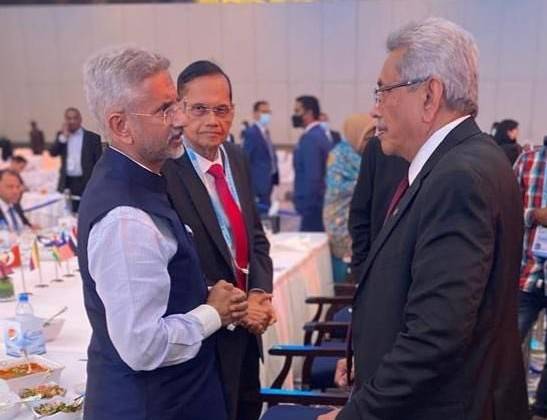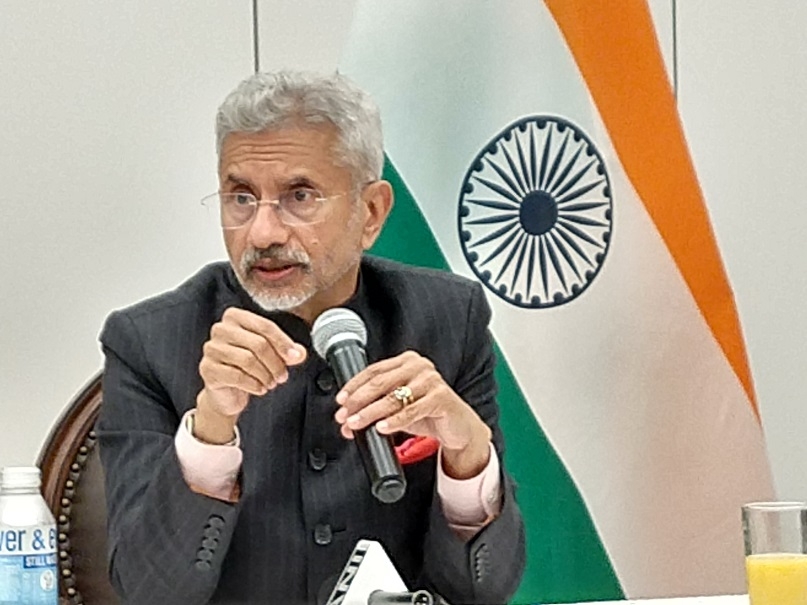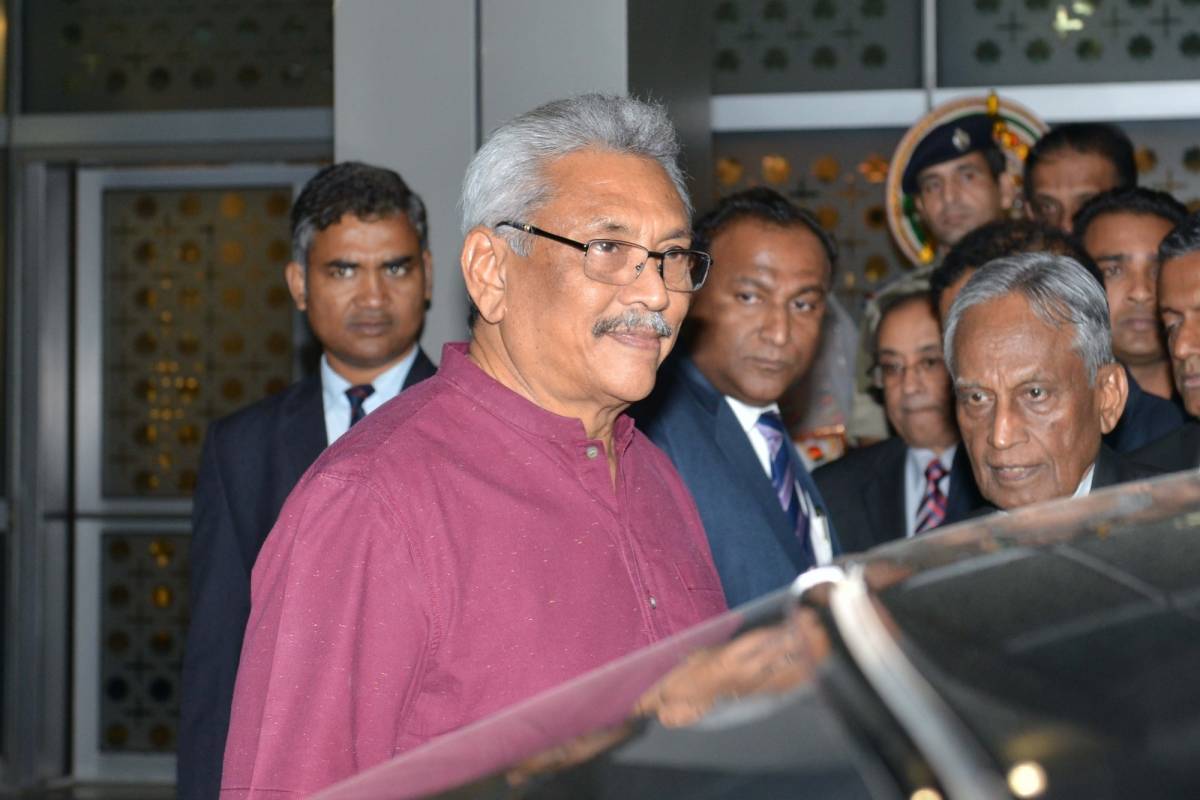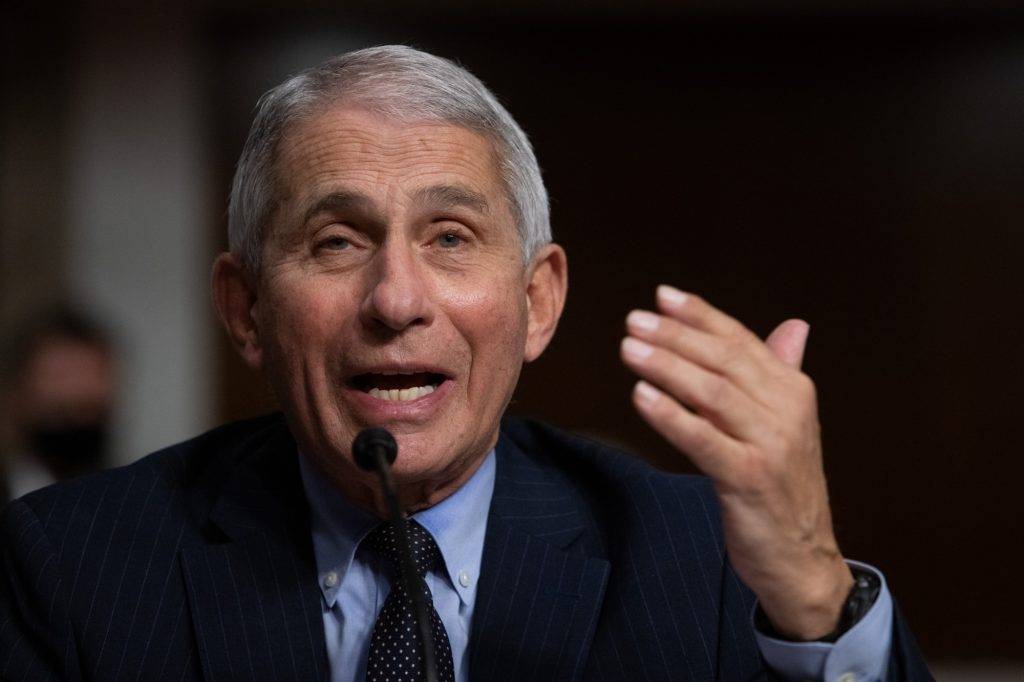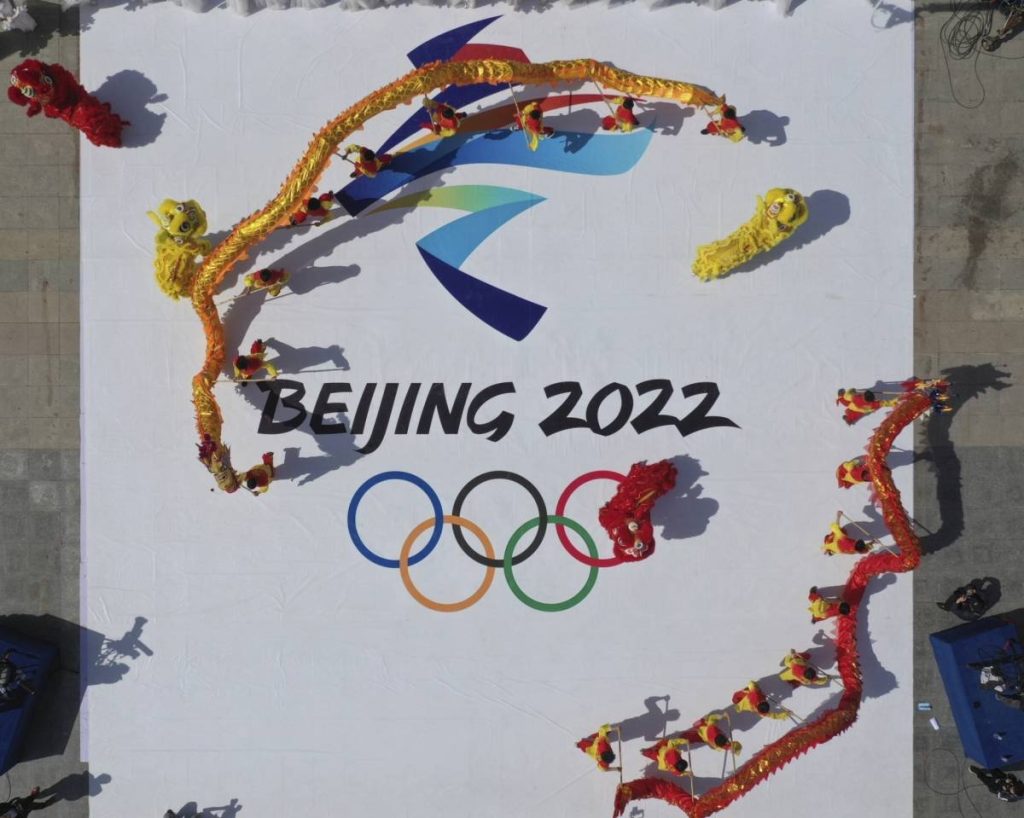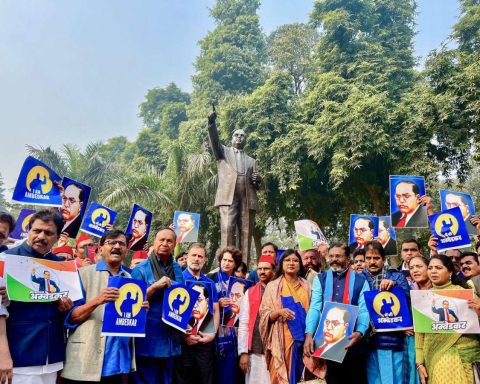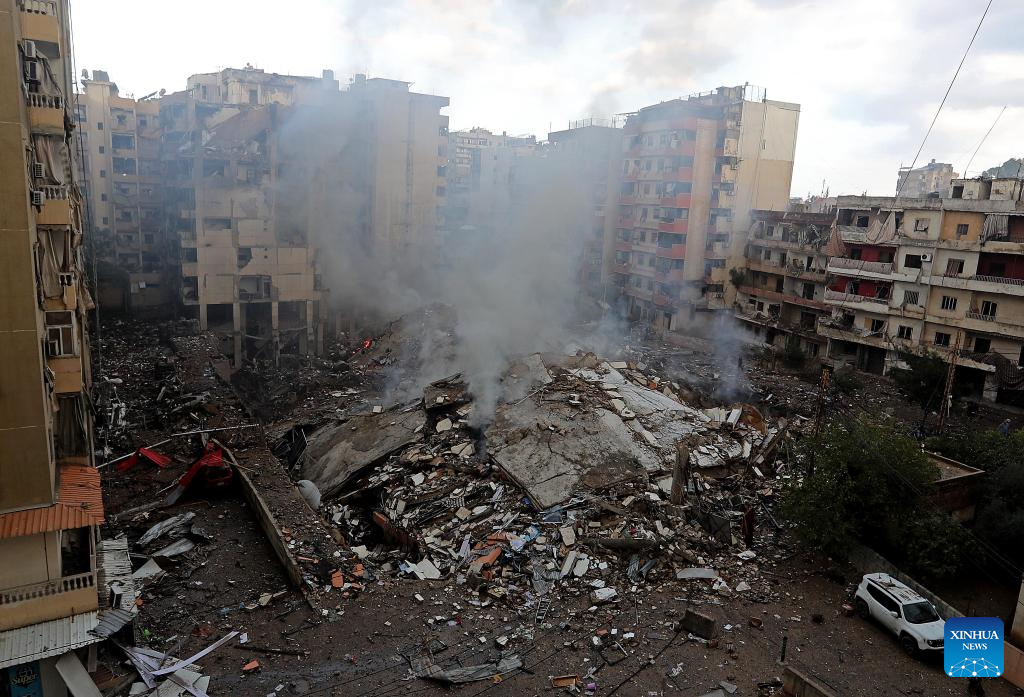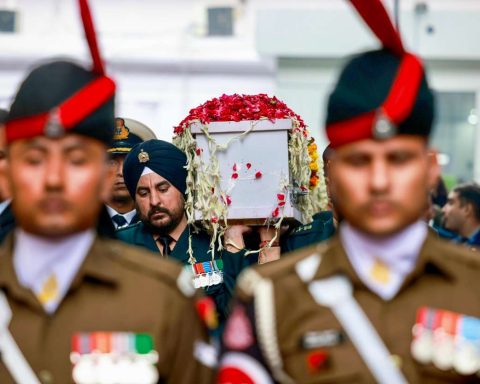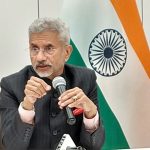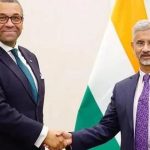Rajapaksa cautioned that if existing vaccines fail to protect against the new Omicron form, the globe might quickly return to square one, with border closures and other restrictions, including lockdown, imposed once more, with possibly devastating results…reports Asian Lite News.
External Affairs Minister S Jaishankar on Saturday met with Sri Lankan President Gotabaya Rajapaksa on the sidelines of 5th Indian Ocean Conference in Abu Dhabi.
“Good to meet President @GotabayaR at the 5th Indian Ocean Conference. His address was a prominent feature of the inaugural session,” EAM Jaishankar tweeted.
At the conference, President Rajapaksa spoke about the threat posed by the new COVID-19 variant Omicron, and urged governments with the resources to support the immunisation drive of less fortunate countries more effectively.
“We greatly appreciate the generosity of India, China, US and Japan, all of whom donated vaccines to us either directly or through COVAX which augmented the larger quantity Sri Lanka purchased from manufacturers on commercial terms,” he was quoted in Sri Lankan media.
“It is a matter of concern that the relatively slow rollout of the vaccines in some parts of the world has resulted in the emergence of a potentially devastating new variant of the virus that needs to be carefully monitored,” he added as per reports.
Rajapaksa cautioned that if existing vaccines fail to protect against the new Omicron form, the globe might quickly return to square one, with border closures and other restrictions, including lockdown, imposed once more, with possibly devastating results.
Noting that the impact of Covid-19 is one of the two developments heightening uncertainties that the Indian Ocean countries contemplate, Jaishankar said that the pandemic has not just been a once-in-century shock to the international system but has thoroughly exposed all its fault-lines and shortcomings.
“In economic terms, the dangers of over-centralized globalization are starkly apparent. The answer lies in both more reliable and resilient supply-chains as well as in greater trust and transparency,” he observed.
“In political terms, the absence of vaccine equity and the reluctance to cooperatively address a challenge of such magnitude spoke for itself. International organizations failed the world, whether in terms of establishing the origins of the problem or in leading the response to it,” Jaishankar added.
Mentioning that India has done its fair share in helping countries during the pandemic, he said, it has been expressed in the supply of medicines, vaccines, and oxygen, or in a willingness to take care of the expatriate population in times of difficulty.
“As we move from a ‘just in time’ globalization to a ‘just in case’ one, the Indian Ocean will witness shorter and multiple supply chains and a broader definition of what constitutes national security. These could well shape the nature of the recovery process,” the External Affairs Minister argued.
“We also need to expeditiously normalise travel through certification recognition so that livelihoods are restored ASAP. India has worked out solutions with about a 100 nations in that regard,” he said.
ALSO READ-Consequences of China’s growing capabilities profound, says Jaishankar
